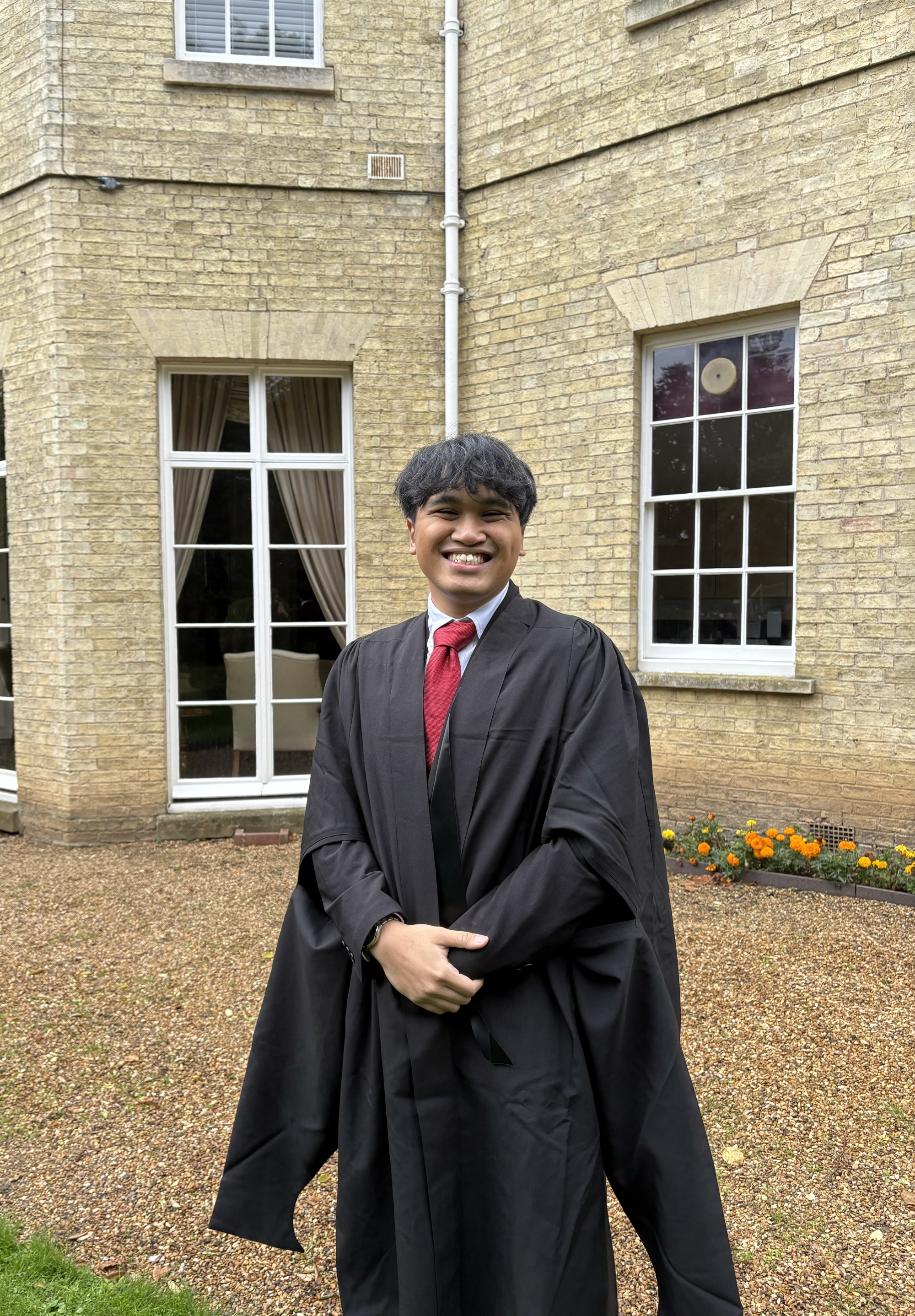Waseda Alum with a Mission to Serve Receives the Rhodes Scholarship
Tue, Dec 24, 2024-
Tags
Growing up in Singapore, Salifian Bin Sulaiman never thought he would come to Japan until he enrolled in the Double Degree Program between the National University of Singapore and Waseda University’s School of International Liberal Studies (SILS). Looking back now, he has nothing but praise. His professors, his peers, even his partner whom he met in Japan, have supported him upon his journey to receiving the prestigious Rhodes Scholarship to pursue his PhD at Oxford University.
As Singaporeans, Salifian and I have many similarities: we both came to Japan from Singapore, we walked the same halls of the SILS faculty building and even have common friends. His insights on a recipe for success, and his tireless dedication to the betterment of the community, however, struck me deeply. Salifian and his achievements are a testament to the value of liberal arts education in Japan and the endurance of kindness and humility in an uncertain world.
Hi Salifian! You did a double degree with the National University of Singapore and Waseda University, and now you’ll be at Oxford soon with a very prestigious scholarship. I want to get to know a little more about you as a person, though. Could you tell me a little about your background?
I was born and raised in Singapore, and I think that an important part of my story is that I come from a working-class family. My father is a delivery driver and my mother is a housewife, and they raised four kids. So, really, we didn’t have much growing up – coming to Waseda was my first time on a plane. One thing about Rhodes is that it isn’t just about academics, but what you can contribute to society. So, I think my upbringing was beneficial because my parents always stressed that you have to think about people other than yourself, but also think about uplifting the community. It isn’t just about your studies and focusing on improving yourself alone, but also the community.
Why Waseda? What was the Double-Degree Program with Waseda like?
I first matriculated at NUS, during which I entered the University Scholars Programme (now NUS College). When I was first told about the Double Degree Program, to be honest, I didn’t have any expectations. Waseda was just one of the options available to me in my programme and it could be covered under my scholarship. Admittedly, back then I wasn’t interested, but it offered the chance of a 2 year exchange, so I thought: Wow, why not?
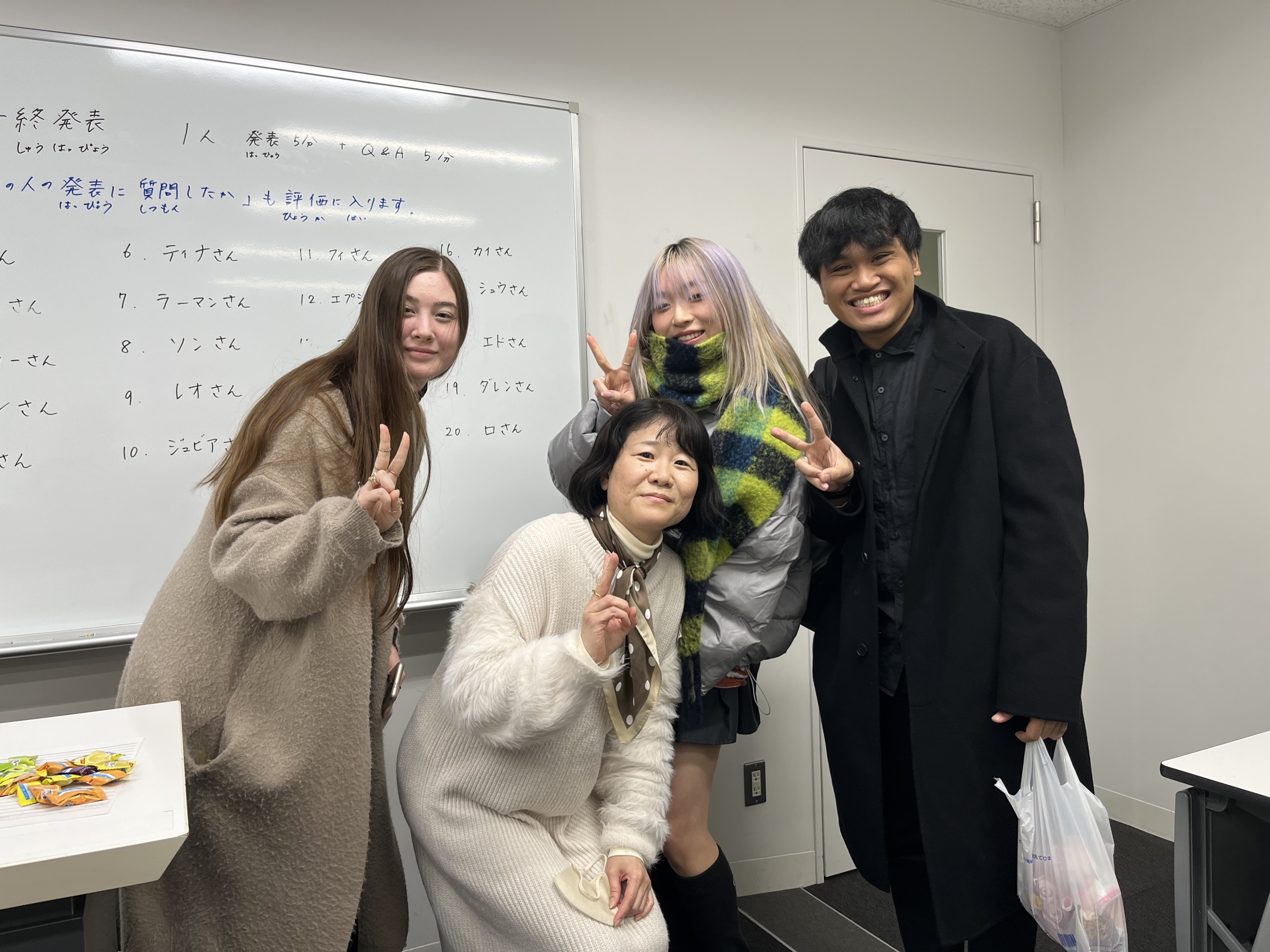
Japanese class at Waseda. Salifian is on the right.
When I arrived, however, I was very interested. It’s (Japan) is a wonderful country and Waseda is really a good university, with so much rich history, and the liberal arts programme itself is interesting, with so many avenues to explore and courses to learn. I think it’s a little ironic because I had no interest in Japan before I came, but now my research is about migration to Japan and my fiancée is from Japan. I really feel rooted there. Life is really funny, isn’t it? I am eternally grateful to Waseda; it has given me so much.
I hear you’re an aspiring migration anthropologist! Could you explain a little about your line of study and what drew you to this field?
I’m interested in how people aspire–how people are motivated and do their best to meet their dreams. It’s an aspiration of many people to go overseas. One of the oldest ways that people attempt to increase social mobility is through migration.
When I was in Tokyo, I went to a mosque in Shinjuku, and there I met a lot of Indonesians, and through talking to them, I realized that they had come to Japan making a gamble for a better future, leaving everything behind. There are many people like that–migrants who aspire to go abroad. It’s not just Indonesians aspiring to come to Japan and Singaporeans aspiring to go abroad. Migration is here to stay and will continue to be more prominent in the world. Even with the rise of isolationist governments and xenophobia, migration increases. With that, stories about these migrants also start to surface more. That’s why I’m interested in this field. It is a field about stories. There is a lot of anti-immigration rhetoric out there, but this field humanises people. In this field, migrants aren’t just statistics. They’re human beings– like you and me.
That’s a story that really resonates with me. On one level it’s because I’m studying abroad in Japan now, but also because my parents and much of my family are migrants. It’s true for many students in SILS as well, there are so many people who have lived in multiple different countries and represent so many different backgrounds and perspectives – that kind of environment is quite rare in Japan.
In the same vein of humanising the world, I also understand that you’re passionate about helping low-income families. Can you share some of your volunteer experiences and the reason for your drive to help this group specifically?
The one volunteer experience that comes to mind is my project, “Bake as One.” I was inspired by many stories of people contributing back to society during the Covid-19 pandemic, and I wanted to give back as well. I really love baking macarons, so I started a charity drive with my friends to raise funds for low-income children in Singapore. In the end, we managed to raise around 200,000 yen, and we gave it all to the Children’s Charity Association of Singapore. That was one of the indirect ways I helped.
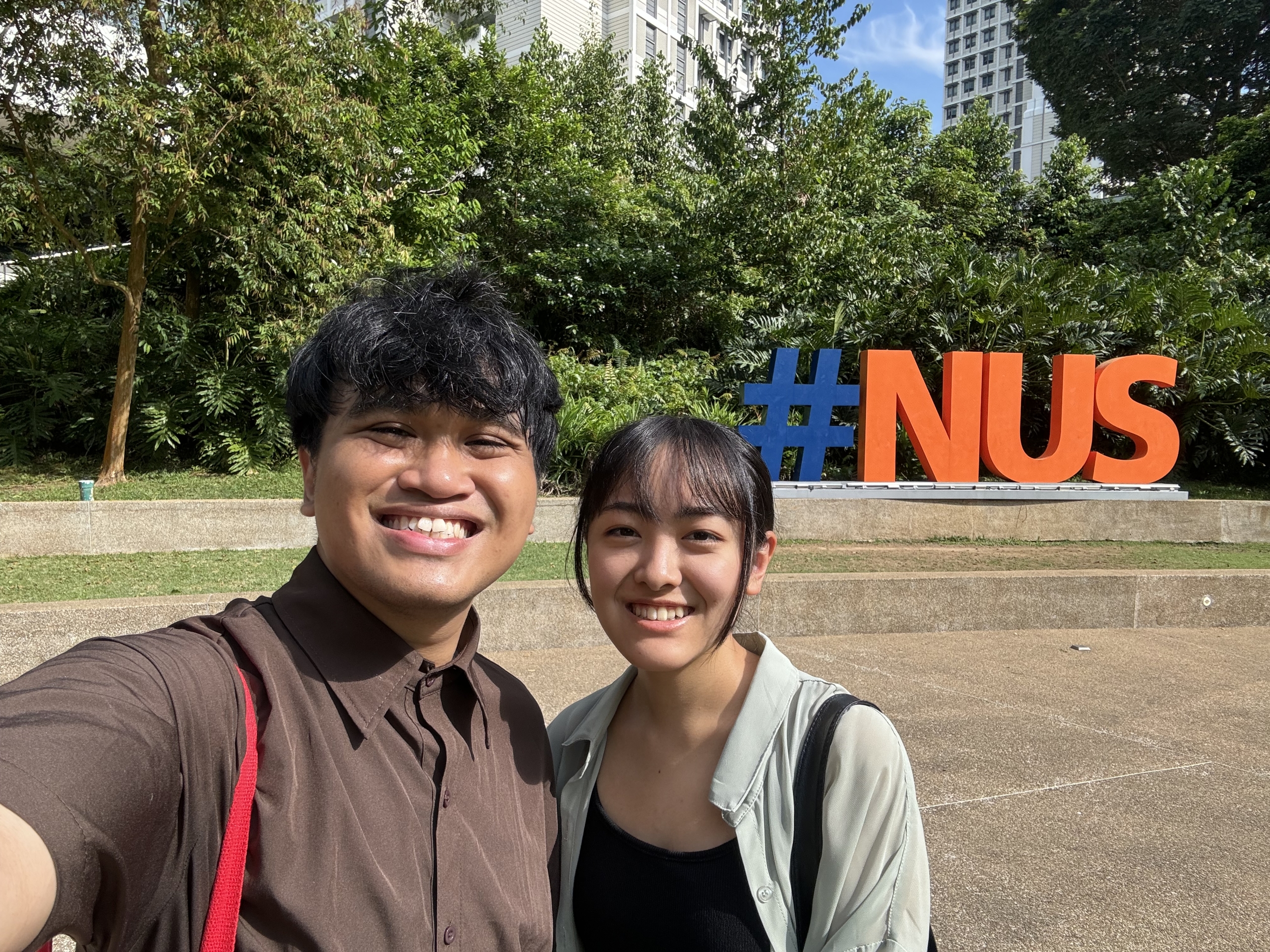
As for more direct ways, I’m engaged in a mentorship programme too. In NUS College I initiated a support group called Salam to strengthen a support community for the minority (Malay) group. Because the Malays are the most underrepresented group in the college, I remember thinking: we should be helping each other out. We did a lot of work spreading the Malay culture while also organising interfaith dialogues to have difficult, but much-needed, conversations.
Wow, my impression of mentorship programmes was just a group of people who help you with your homework.
Exactly, though, that’s where it starts. For Salam also, we started out as a group of friends. When NUS College was being formed, one of the professors reached out to me and asked me to think of ways that the college can appeal more to minority students. So, as friends, we got together and workshopped ideas about how to make the college more accessible for minorities, and submitted these suggestions. We also worked on outreach with community organisations like Mendaki (Malay-Muslims self-help organisation). That is the impact of a group like that. It all starts with being friends with everyone, listening to and supporting each other, and the positive effects from that trickle down, becoming something bigger.
I understand that you are soon to be enrolled at Oxford with the Rhodes scholarship. Can you tell me a bit about the scholarship? Why do you think you were chosen?
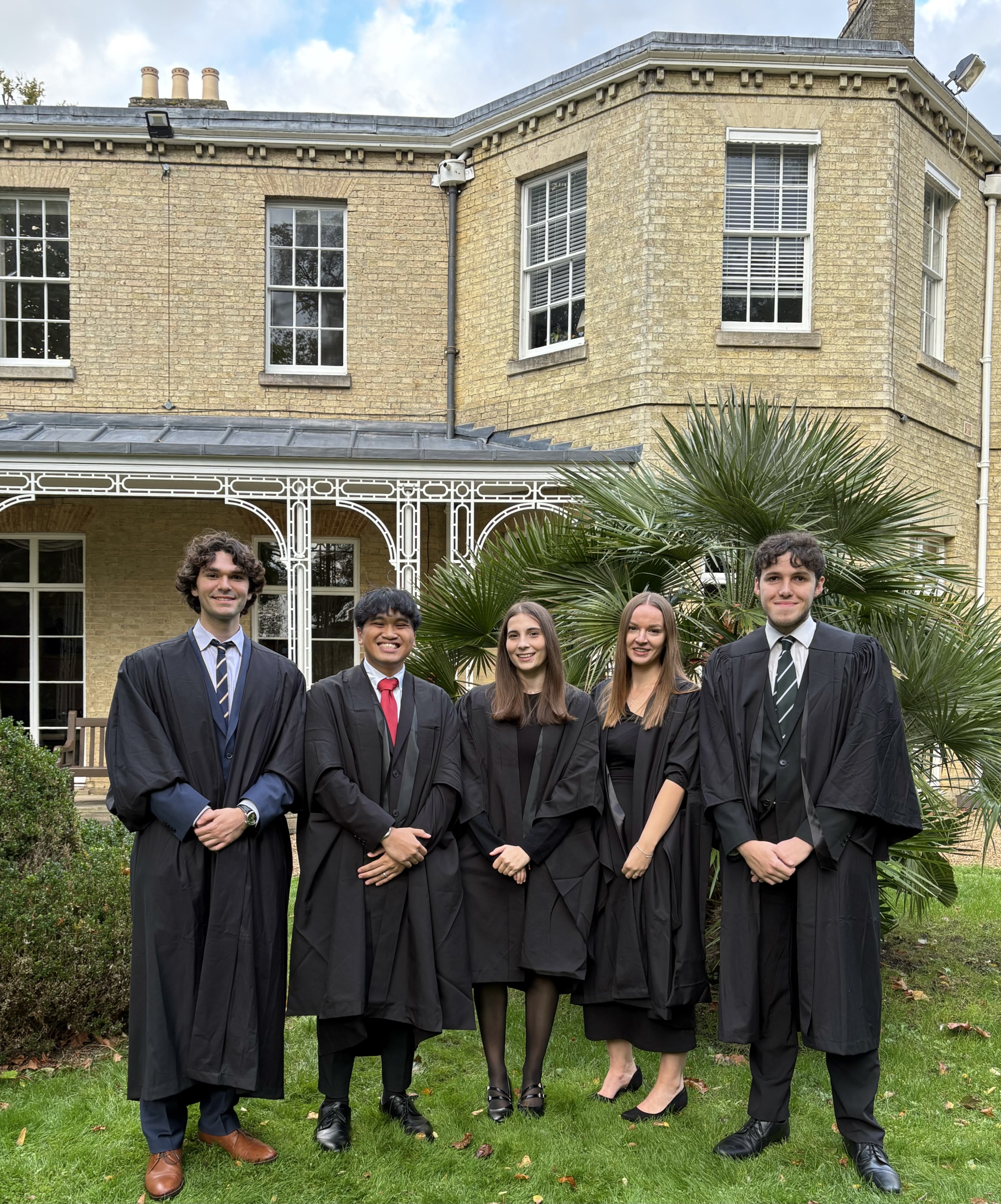
With fellow Cambridge students. Salifian is second from the left.
The Rhodes Scholarship is a scholarship programme established at Oxford University, which aims to select public-spirited leaders and promote international understanding through a global community of Scholars. However, what personally stood out to me was the fourth quality of a Rhodes scholar, which was having a “moral force of character and instincts to lead, and to take an interest in one’s fellow beings.” This quality of always helping others in the best way possible really appeals to me, and it inspires me to continue uplifting the community around me. Before I heard about Rhodes, I wanted to be a teacher for the longest time and had set my heart on applying for the local scholarship from the Ministry of Education in Singapore, and I never even considered going abroad for my studies because of the lack of financial support and more importantly, knowledge of scholarships. I got to know about Rhodes in my second year of university, and it was a truly serendipitous moment. One night, my friend and I were just talking about random things, and the topic changed to our dreams and aspirations. My friend then told me about the possibility of studying in Oxbridge through the Rhodes Scholarship; that’s where the dream was born. In Waseda, I applied for it once and I got rejected. One thing I realised was that even though I thought I understood myself deeply at that first round, in preparation for the second round, I realised that, I knew myself even better. That’s why I think anyone and everyone should apply. It’s a good opportunity to really get to know yourself better and what your dreams and aspirations are.
When applying to Rhodes, the first step of the application is the standard stuff: essays, transcripts and an interview. In the second stage, you are given the opportunity to attend a social night with the other applicants, previous Rhodes scholars and your interviewers. The day after this dinner, you go for your interview. I remember feeling super ready because the first interview was 8 interviewers, and I thought, “Well, now I’m ready for anything they throw at me.” But when I walked in for the interview, it was a huge seminar room with about 15 interviewers, and I felt so nervous about it. After the interview, I thought I did not do well and was so sure I wasn’t going to get it. But I am so fortunate that they saw something in me, and I feel that for anything that we aspire for in our lives, we should do our best and always believe in ourselves. So, I really encourage everyone to apply for not just this scholarship but other awards or positions that you really want to have. You never know until you try!
You’re currently doing a master’s degree at Cambridge, and then your PhD will be done at Oxford, both academic institutions known around the world for being academically competitive and extremely rigorous. I think even a genius would struggle through it. What keeps you going through it all?
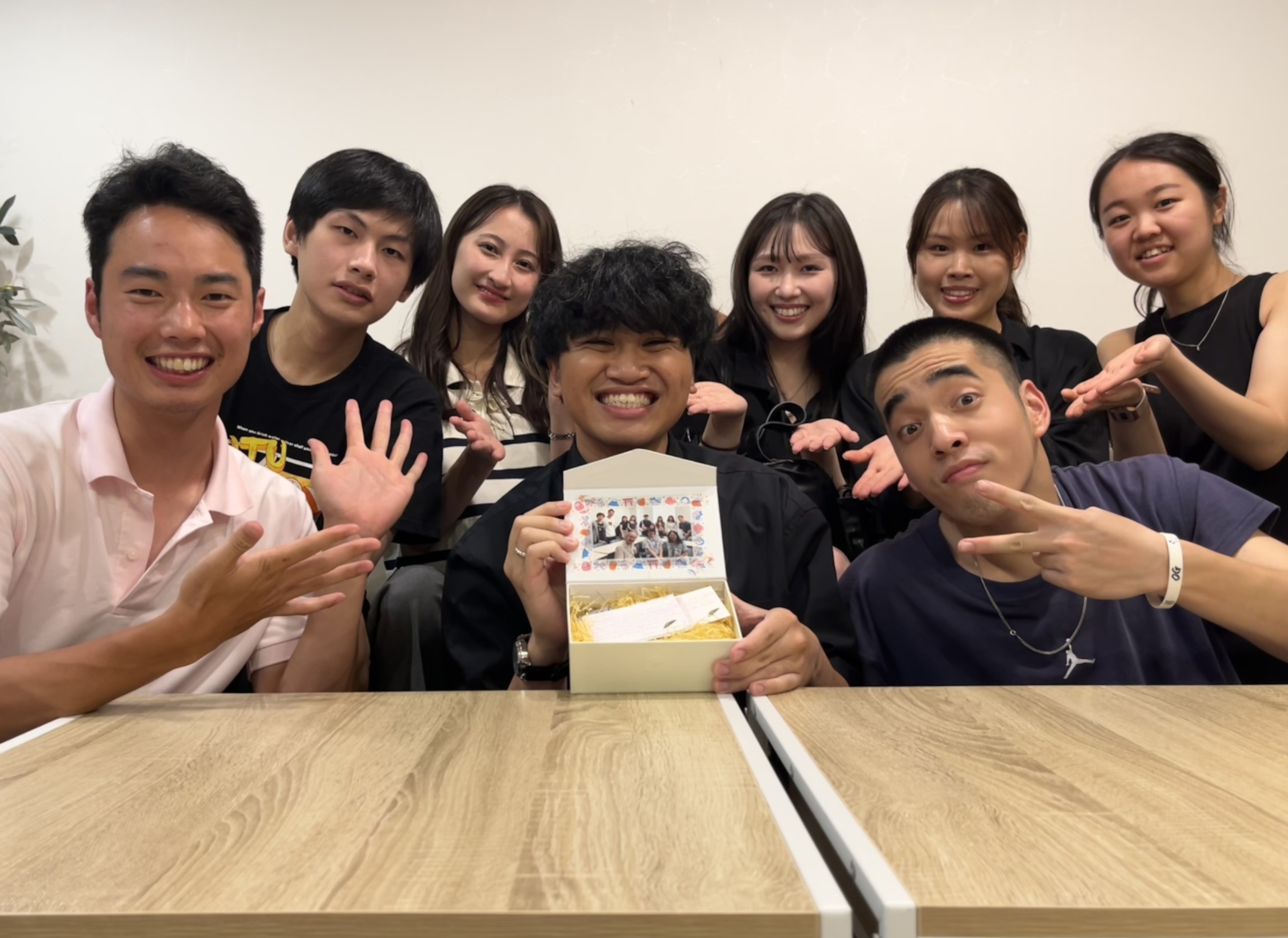
Salifian (middle) with his zemi friends.
I have to clarify that I don’t think I’m a genius by any stretch. I think I’m incredibly blessed, and I have been lucky to have met people who can guide and support me at every turn of the way. I wish I were a genius to understand difficult concepts better, but I’d say my gift is in creativity and making genuine connections with others. I think these skills make up for some part of my lack of being able to grasp difficult concepts quickly, and it goes a long way in humanities research, like anthropology.
One thing that keeps me going also is the great friends and the amazing network I have gained in Waseda – my zemi (Seminar) professor and all of my course mates. I met so many professors who not just taught but gave me advice on various things. I met my partner in life, who sees me through everything, at Waseda. We don’t just wade through this route alone. It’s us and everybody supporting us – everybody is instrumental.
I am reminded of a quote by Arnold Schwarzenegger. He came from a really humble background and worked his way up in life and had an extremely fulfilling career, where he has been a bodybuilder, actor, and even politician. But he stated very clearly that one thing he hates being called is a “self-made man”, even though to everybody else he is. He thinks that his success isn’t just because of his own efforts but it was due to the luck he got, the people he met and those he talked to. These people made him who he is. We can keep going, moving forward, if we recognise that we need others; we stay humble. I believe that, too.
On that topic, what plans do you have for the future?
My goal is completing my PhD, teaching in a university and contributing back to the places that have given me opportunities to learn – Singapore, NUS, Waseda. I want to do many things, including strengthening the liberal arts education scene in Japan, and promoting the study of migration in Singapore and around the world.
A goal for me is to also add to the value of humanities education. The humanities are especially important in a world that is growing and expanding, becoming interconnected at such a rate. There’s so much nuance to that growth that needs our attention. I think with this kind of growth the social sciences will help to humanise what we do. I believe in that, so I want to enhance migration studies, the study of humans. That is my dream.
Of course, dreams change, but for the moment these are the things I want to work towards. Of course, I also look forward to starting a family, and I want to raise my kids to be good people.
As a student in the School of International Liberal Studies (SILS), it really means a lot to me that you said that. I agree completely about the value of liberal arts and the social sciences in today’s world.
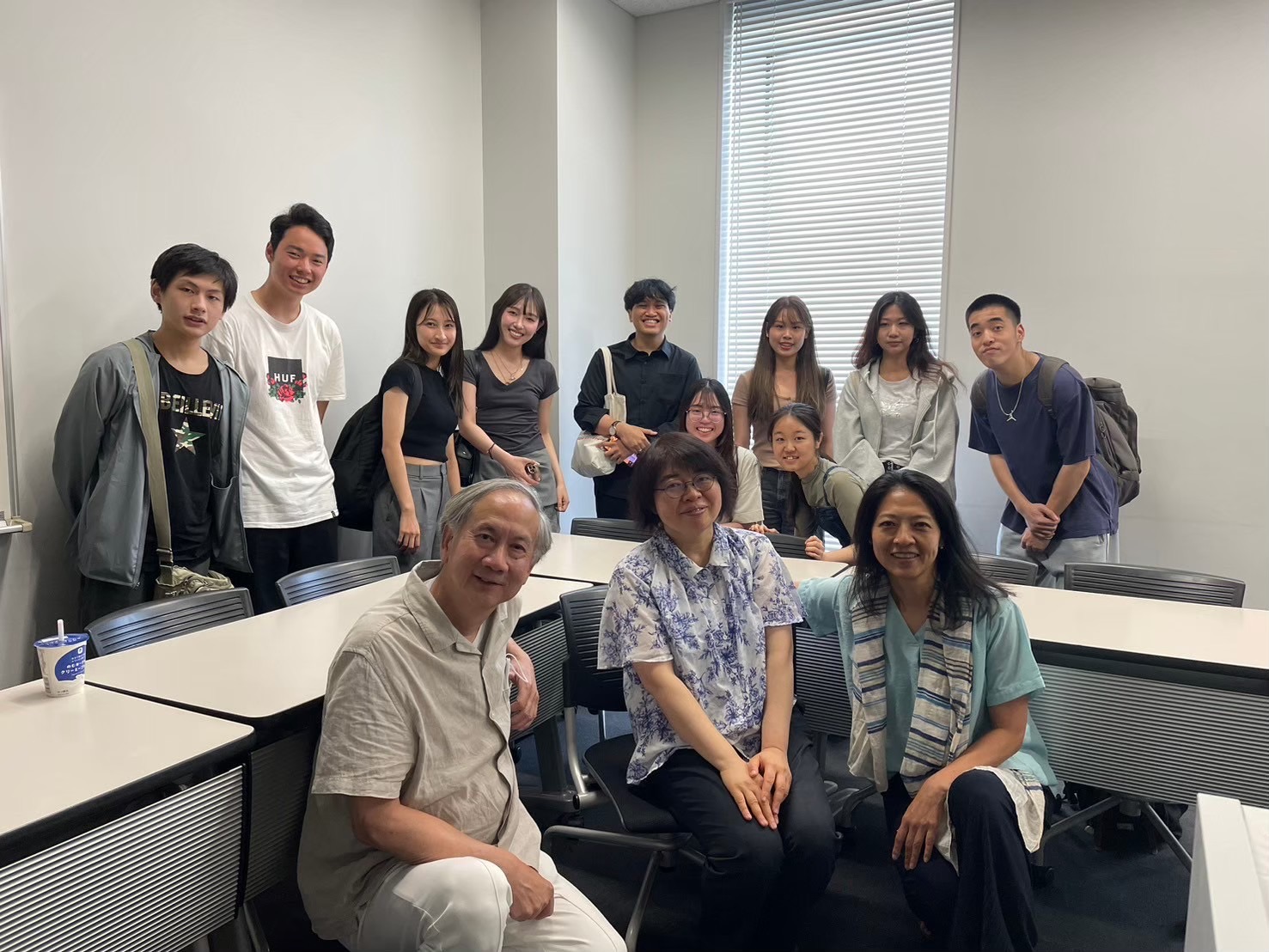
Salifian (back row, middle) at SILS.
I think that’s why SILS was born. It is so important to meet people, learn about their stories and talk to them, it is so important to help each other. I love SILS, I think the human dimension is its strength. In SILS and anywhere, it’s really about forming genuine bonds with others and trying our best to help each other.
It’s really wonderful that people like you have come out of the program, people who believe in the arts and care about humanity.
I think there are a lot of people who come out of SILS who do amazing things from SILS – I know people doing poetry, contributing to the arts. I love it, I really owe a lot to my time there.
Do you have advice for all the Waseda students who want to be like you?
Give things a try. With anything you want to do, achieving your dream or helping others, just try. That might sound like a small thing in the beginning, but it snowballs into big things later on. Enrolling at SILS was such a small step in the grand scheme of things, but it snowballs and brought me to where I am today, at this moment. It’s just so serendipitous to me. I’d say help one person first, and then let it grow into helping a community.
Secondly, always be humble, recognise that you’re not here alone. You’re in a good circle. You know good people, all of which have supported you. You’re in Waseda. You did well to reach where you are, but have gratitude for the people who brought you here.
Thank you.
Serendipity – the word that Salifian used reverberated in my brain for days to come. From Singapore to Japan, Japan to the UK, the intersecting lines of our trajectories seemed so unlikely that it felt truly fateful to have been able to speak to him. As I attended my lessons the next day, I could not help but imagine how he had been in the very same building, laughing and making friends, extending a helping hand, and hunkering down to work for a brighter future. I could not help but imagine myself and my peers becoming just as worldly and open hearted as he. He truly captured the essence of education – it is not just a tool with which we strive for the accumulation of knowledge for the self, but an experience that hones us into the people that will build a kinder, stronger world.
This article was written by the following Student Contributor:
Josephine Pau
School of International Liberal Studies


